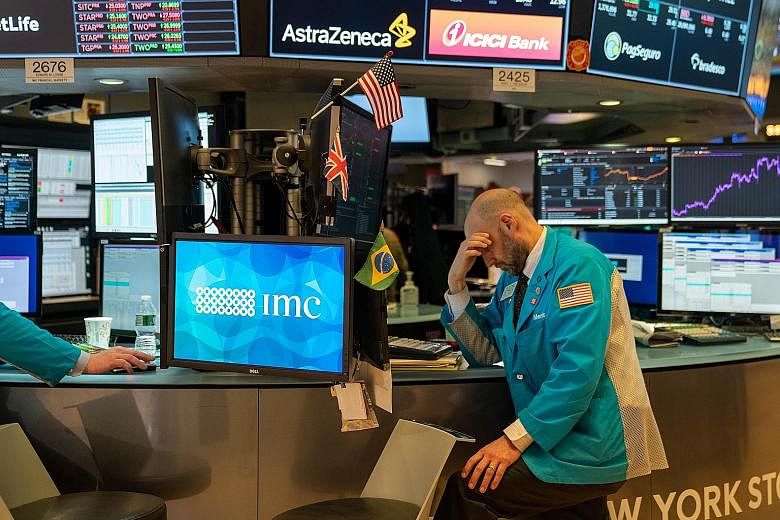With coronavirus cases in Europe and the US still on the rise, investors are likely to remain unsettled by the outbreak which has been the main driver of sentiment in financial markets over the past month.
Investors are still panicking as the disease threatens to engulf the West, while last week's monetary and fiscal stimulus measures by governments failed to lift confidence.
Last Friday, the Dow Jones Industrial Average fell 1 per cent, the S&P 500 1.7 per cent, and the Nasdaq Composite 1.9 per cent.
Wall Street's slide came despite stellar payroll data for last month, when the US economy added 273,000 jobs. All three US benchmarks eked out small weekly gains after a wild week that saw the Dow swing 1,000 points or higher twice.
However, US stocks are still in correction territory, down at least 10 per cent from their recent peaks.
It was "no great surprise" to AxiCorp chief market strategist Stephen Innes that the strong showing did not cheer investors. "No one cared about payrolls, with all eyes focused on the Covid-19 media reels," he said.
At the weekend, US President Donald Trump signed a Bill aimed at providing US$8.3 billion (S$11.4 billion) to bolster the capacity of the United States to test for Covid-19 and fund other measures to curb the spread. The US has also excluded Chinese-made face masks and medical gear from its tariffs list.
Singapore's Straits Times Index (STI) fell 57.29 points, or 1.9 per cent, last Friday to finish at 2,960.98 - its first closing below 3,000 since late October 2018.
Even though most of those infected with Covid-19 in Singapore have recovered, earlier Chinese containment efforts and the hit on travel and tourism-related industries that followed have hurt growth prospects for the city state.
DBS Group Research has cut earnings of STI firms by 6.3 per cent for financial year 2020 and lowered its year-end target for the STI to 3,350, from 3,500. DBS' current target translates into a 4 per cent growth for the STI in 2020. That said, following the recent sell-offs in equities, value in some listings has emerged.
In an equity strategy report for this month, Maybank Kim Eng analysts Thilan Wickramasinghe and Lai Gene Lih wrote: "Sectors valuations, including banks, some tech and industrial names, are trading close to troughs seen during the Sars (severe acute respiratory syndrome) epidemic, which was significantly more deadly and disruptive."
They pointed out that the STI recovered 26 per cent in the three months after trough levels were hit in April 2003, when Sars infections peaked.
The local economic docket remains relatively empty this week. Official February foreign reserve figures are due today and the Singapore manpower survey for the second quarter will be out tomorrow.
The corporate earnings season for the October-December quarter has tapered off, but some are due to report earnings this week. They include food and beverage firm Del Monte Pacific and insurer Prudential, which will announce their respective third-quarter and full-year performances on Wednesday.
Meanwhile, United Food Holdings, a supplier of soya-bean products in China, will post third-quarter results on Friday.


